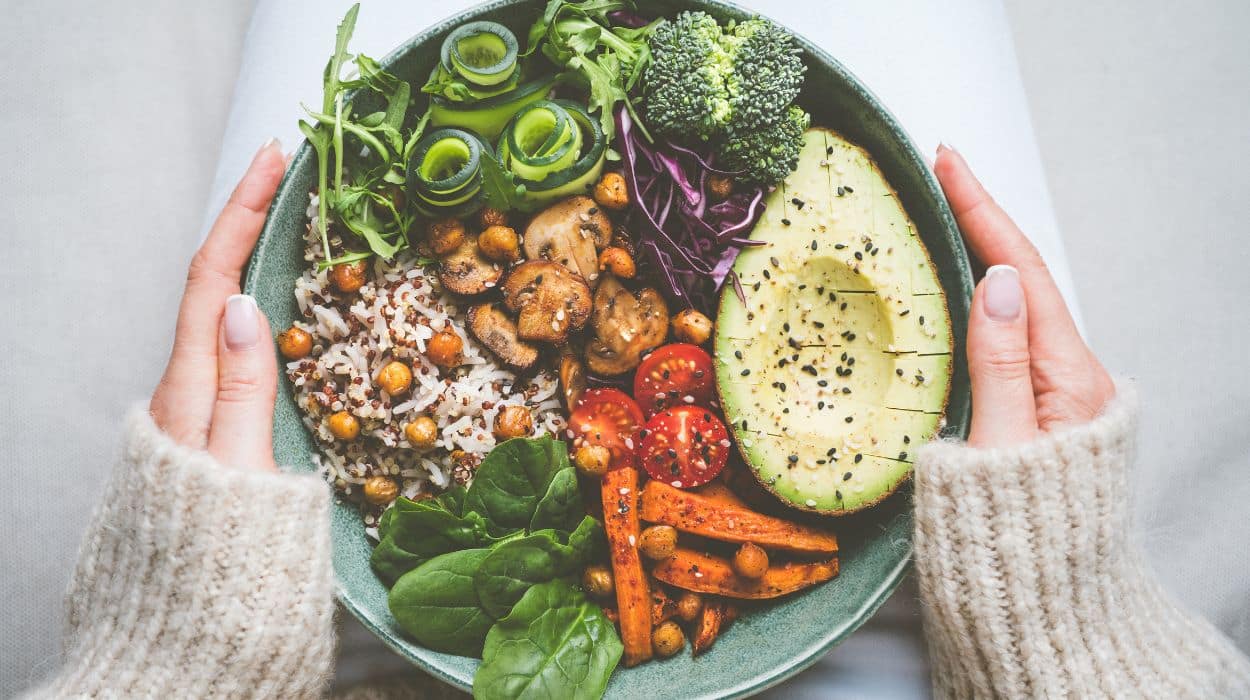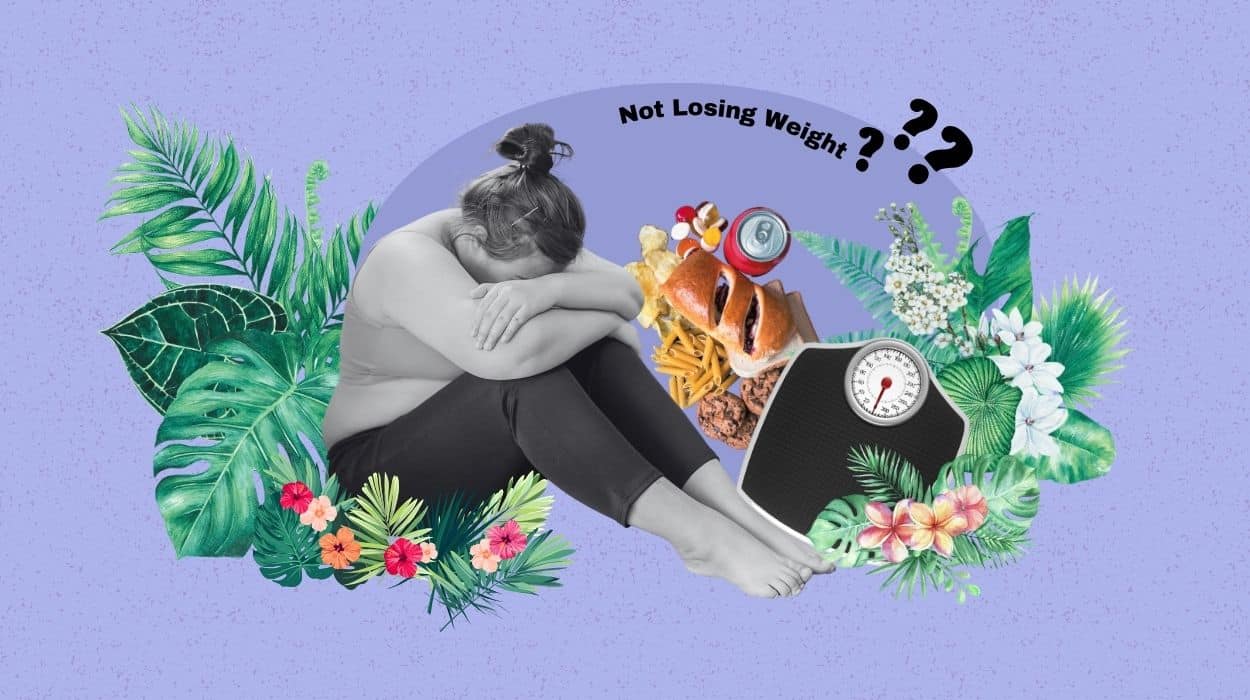The ketogenic diet has gained immense popularity recently due to its numerous health benefits, including weight loss. However, some individuals may find themselves not losing weight on keto despite their best efforts.
If you’re facing this frustrating situation, don’t worry. In this comprehensive guide, we’ll explore the possible reasons behind the inability to lose weight on the keto diet and provide you with helpful tips to overcome these challenges and achieve your weight loss goals.
Why Am I Not Losing Weight On Keto?
Have you been sticking to the keto diet and want to know why am I not losing weight on keto? There are many common reasons you might not lose weight on the keto diet, including:
- Not maintaining ketosis
- Not consuming enough nutritious foods
- Consuming too many carbs
- Consuming too many calories
- Having too much protein
- Having too little fiber
- Not sleeping enough
Not Losing Weight On Keto: 7 Reasons
Not Maintaining Ketosis
Achieving and maintaining ketosis[1] is vital for weight loss on the keto diet. Ketosis occurs when your body shifts from using glucose as its primary energy source to burning fat to produce ketone bodies. Although it might seem obvious, if you’re not losing weight on the keto diet, it’s possible that you haven’t reached ketosis.
You can test for ketones[2] in your urine or blood to determine if you’re in ketosis. These measurements will provide insights into whether you’re genuinely in ketosis and if your weight loss efforts align with the metabolic state you are trying to achieve. If you are not, you can adjust your diet or seek the guidance of a knowledgeable nutritionist.
There are also keto diet pills that can help a person maintain ketosis. Adding these to your diet plan may give you a weight loss boost.
Not Consume Nutritious Foods

A common misconception about the ketogenic diet is that it is solely focused on cutting carbs and consuming more fats. A significant portion of your daily calories should come from healthy fats, but the type and quantity of fats you consume can impact your weight loss goals.
Fat is crucial for satiety,[3] hormone regulation,[4] and the absorption of fat-soluble vitamins.[5] If you’re not consuming enough healthy fats, you may experience increased hunger, leading to overeating and grazing, adding extra calories, and hindering weight loss.
On the other hand, eating too much fat that is not nutritious from sources like bacon, sausage, cheese, whole milk, and butter may prevent weight loss. Overdoing[6] your fat intake can prevent your body from utilizing its fat stores for energy and kick you out of ketosis.
It is best to include sources of healthy fats like avocados, olive oil, nuts, and seeds in your diet to support your weight loss goals. Some of the best fruits for weight loss include strawberries, blueberries, and melons. If you aren’t sure what healthy food options exist while on the keto diet, you can explore a keto diet foods list to gain inspiration.
Consume Too Many Carbs
For most people, carbohydrate intake must remain below 50/g day to remain in ketosis.[7] While you may be diligent about avoiding obvious sources of carbohydrates like bread, pasta, and sugary snacks, there are hidden sources of carbs that can unknowingly sabotage your weight loss efforts.
Sauces, condiments, and processed foods often contain hidden sugars and starches that can add up quickly. Even keto-safe foods like berries, veggies, and nuts contain some carbohydrates. Be mindful of reading labels and opt for whole, unprocessed foods whenever possible to minimize hidden carbohydrate intake.
Consuming Too Many Calories
One of the fundamental principles of any diet is creating a calorie deficit,[8] which means consuming fewer calories than your body needs for daily maintenance. While the ketogenic diet can be effective for burning fat, it’s still possible to over-consume calories, especially if you’re relying heavily on calorie-dense foods like nuts, cheese, and oils.
It’s important to remember that even though you’re cutting carbs, you still need to be in a calorie deficit to lose weight, so figuring out how many calories you consume each day is essential.
Having Too Much Protein
Protein is an essential macronutrient that plays a crucial role in various bodily functions and is a key component of the ketogenic diet. However, consuming too much protein on the keto diet can actually impede weight loss. Especially if you are consuming a keto protein powder, without properly counting macronutrients.
Excess protein[9] can be converted into glucose through a process called gluconeogenesis, which can disrupt ketosis. Unknowingly knocking yourself out of ketosis will prevent your body from efficiently burning fat for fuel.
Be mindful of counting protein consumption throughout the day. Having an extra egg at breakfast or a handful of nuts might seem harmless, but it can quickly add up. This also might pose a challenge for vegetarians on the keto diet, who have more restrictive eating parameters. It’s important to find the right balance of protein intake to support your body’s needs without thwarting your weight loss goals.
Low Fiber Intake
Fiber[10] is an essential nutrient that promotes healthy digestion, and feelings of fullness, and supports healthy weight management. However, on a ketogenic diet, it’s easy to overlook fiber-rich foods like fruits, legumes, and whole grains, which are typically restricted due to their higher carbohydrate content.
Insufficient fiber intake can lead to digestive issues and even push your gut flora[11] out of balance, which has been shown to prevent weight loss. Incorporate non-starchy vegetables, such as leafy greens, broccoli, and cauliflower, into your meals to increase your fiber intake and support healthy weight loss.
Not Sleeping Enough

Even if you are following the keto diet plan, not getting enough sleep can certainly stall your weight loss. Research[12] has shown that even one night of poor sleep can actually increase the hunger hormone ghrelin, which may lead to overeating and make you gain weight. This is why getting the right amount of sleep consistently is crucial.
In a 2017 study,[13] getting at least 7 hours of sleep increased the likelihood of weight loss success. Additionally, they found the quality of sleep was a factor that contributed to boosting weight loss as well. Ensure you prioritize your sleep hygiene by sleeping in a dark room, keeping the temperature cool, and getting enough hours of shut-eye to support your weight loss efforts.
Ketogenic Diet: An Overview
Before we delve into the reasons for not losing weight on the keto diet, let’s first recap the fundamental principles[14] of this low-carb, high-fat eating plan. The keto diet aims to shift your body into a metabolic state called ketosis, primarily burning fat for fuel instead of glucose. When you are in ketosis, the body will burn fat stores to make ketones instead of the typical energy source of carbohydrates.
The ketogenic diet focuses on tracking macronutrients to achieve a state of ketosis. The macronutrient breakdown of the diet includes consuming no more than 10% of your calories from carbohydrates, around 20% from protein, and 70% from healthy fats. By drastically reducing your carb intake and increasing your fat consumption, you encourage ketosis and promote weight loss.
Ways To Improve Keto Weight Loss Efforts
Incorporate Intermittent Fasting
Intermittent fasting[15] is a powerful strategy that can complement the keto diet and accelerate weight loss. By restricting your eating window and extending periods of fasting, you can enhance fat burning and promote a deeper state of ketosis. Intermittent fasting can also help regulate hunger hormones and improve insulin sensitivity, further supporting weight loss efforts.
So, how long does it take for intermittent fasting to work? Typically about 10 days you will notice a difference, but it could take up to 2 weeks.[16] One of the benefits of being on the keto diet while intermittent fasting is that intermittent fasting will work as long as you implement it and could be a lifelong lifestyle change for some people. Consider incorporating intermittent fasting into your keto routine under the guidance of a healthcare professional or registered dietitian.
Use MCT Oil In Your Food And Coffee
Medium Chain Triglycerides (MCT) are a particular fat found in milk products and plant-based oils that increase ketone production.[17] MCT oil is a form of exogenous ketones made from coconuts. When added to the diet, MCT oil can help support ketosis by providing a healthy fat source that promotes ketone production. MCT oil has been shown[18] to support ketone production in adults with Alzheimer’s by promoting ketosis.
Adding MCT oil to your coffee and food has been a keto diet secret that adds an additional source of fat without any carbohydrates or protein. If you miss the mark through diet alone, this nutritional supplement might boost your weight loss by shifting you into ketosis, the fat-burning state.
Adding In Exercise
Although the keto diet may help with weight loss, incorporating exercise is a simple and easy way to boost weight loss goals if you have hit a plateau. Exercise has been shown to burn calories and build muscles,[19] supporting weight loss.
Additionally, exercising has been shown to improve mental health and prevent diabetes, stroke, and osteoporosis. Some of the best exercises for weight loss include adding activities like weight lifting, running, or cycling, which can support weight loss. All the benefits of exercise make it a worthwhile addition to your new healthy lifestyle.
Helpful Tips To Avoid Dieting Mistakes
- Drink more water to help you feel full throughout the day and prevent snacking.
- Avoid alcohol which contains additional calories, and negatively impacts digestion.
- Reduce stress levels by incorporating meditation, yoga, or deep breathing.
- Keep a food diet journal to make sure you are tracking your calorie consumption correctly.
- Chew sugarless gum to prevent cravings between meals.
Conclusion
Losing weight on the keto diet is achievable, but it requires understanding and addressing the potential reasons that you might not be seeing progress. By ensuring you have the correct macronutrient ratios, achieving and maintaining ketosis, monitoring hidden carbs and calorie intake, and watching your fiber intake, you will start losing weight on the keto diet. Remember to stay consistent, seek professional guidance when needed, and celebrate the non-scale victories along your journey toward a healthier, happier you.
Frequently Asked Questions
There are many factors that contribute to weight loss on the ketogenic diet. This includes macronutrient consumption, counting calories, getting enough sleep, and watching your fiber intake. A misbalance in any of these factors can prevent weight loss.
Adequate sleep is essential for weight loss. Research[20] has shown that poor sleep can increase the hunger hormone, ghrelin, which may lead to overeating and weight gain. Prioritize your sleep to support your diet.
Adding supplements such as Keto Actives may promote healthy weight loss in certain individuals. It is always important to check with your doctor before adding any new supplements to your routine.
 Expert's opinion
Expert's opinion

